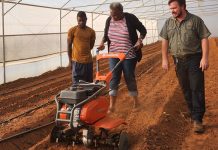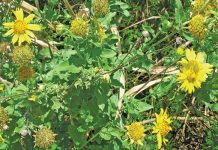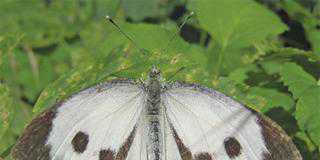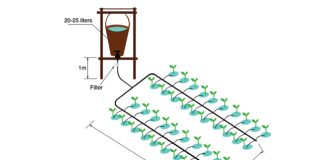A plant is the only living organism able to manufacture its own food. All other forms of life need to consume plants, their products, or other organisms (which have eaten plants) to meet their energy needs. Plants use an extremely efficient process called photosynthesis to feed themselves. This system also benefits other creatures, including humans, because it releases oxygen as a waste product into the atmosphere. A green pigment found in the leaves of plants, called chlorophyll, is necessary to set the process in motion. Radiant energy is captured from the sun and used with carbon dioxide from the air and water from the soil.
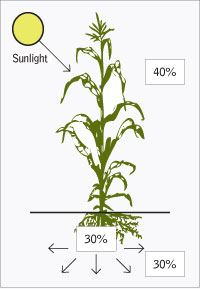
Distribution of the products of photosynthesis. Note that 30% of production goes to the soil.
Glucose
The main product of this is glucose, the fundamental building block of carbohydrates, such as complex sugars, starches and cellulose. The water-soluble sugars, such as sucrose and maltose, are used for immediate energy. The insoluble starches are stored as tiny granules in various parts of the plant, mainly the leaves, roots (including tubers) and fruits, and can be broken down again when energy is needed. Cellulose is used to build the rigid cell walls that form the principal support structure of plants – the stems.
Soil
Only about 40% of the products of photosynthesis are used by the plant to produce ‘aerial’ or above-ground plant parts, such as leaves, stems, flowers and seed. The rest is sent down to the plant’s root system. Here, half is used by the plant for root growth, while the rest is pumped into the soil (rhizosphere). That seems wasteful, not so? But a plant is a highly efficient organism, so we need to pause a moment and ask ourselves why it would be designed to pump up to 30% of all the energy it produces into the soil surrounding its roots. And that’s what we will be investigating next time.
Foundations for Farming (FFF) is a Zimbabwe-based NGO that teaches conservation agriculture practices to farmers, based on Christian principles. FFF provided the information for this article. Visit www.foundationsforfarming.org.

